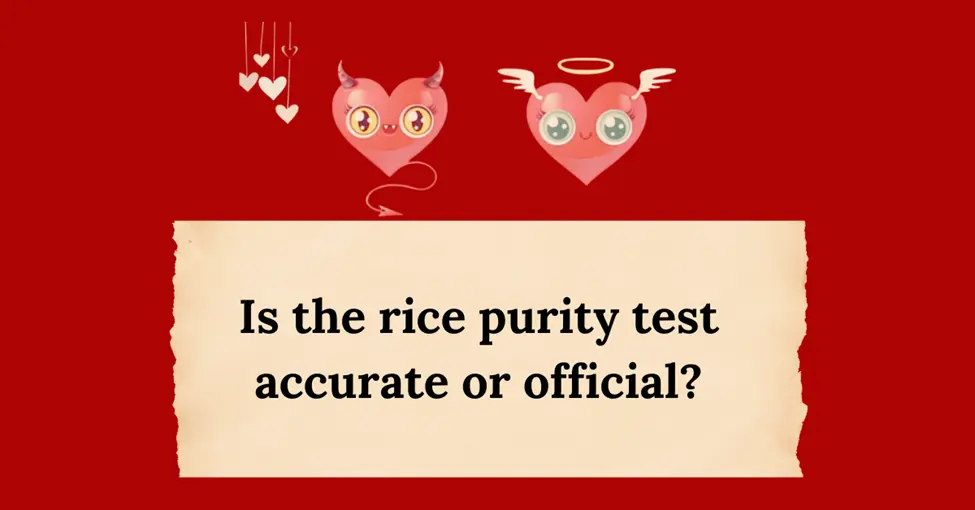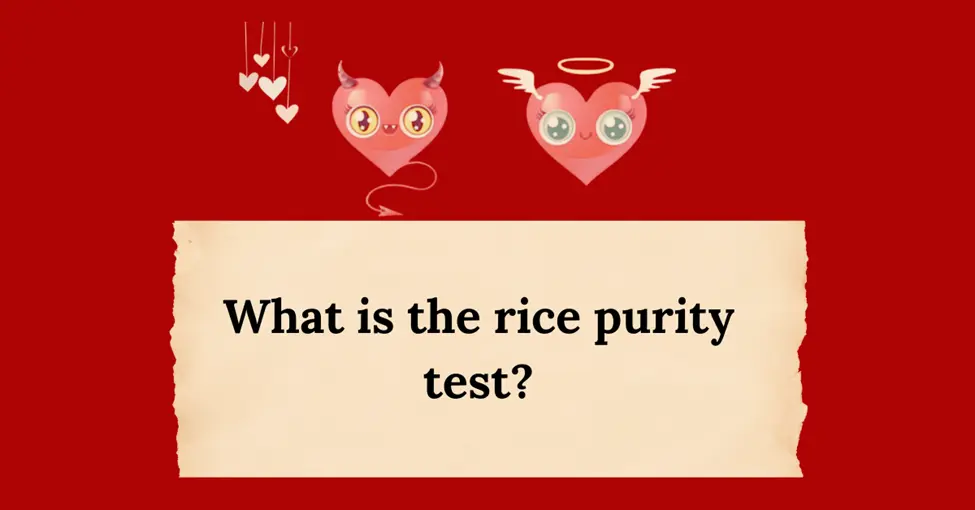Curious about the rice purity test you keep seeing on social media and in college group chats? This 100-question, self-scored quiz is a lighthearted way to reflect on life experiences ranging from dating and relationships to rule-bending and partying. It’s meant for fun, not judgment. Below, you’ll find what it is, how the scoring works, what your score means, and how to take it responsibly with your privacy in mind.
What is the rice purity test?
A student-created questionnaire: Originating with students at Rice University, the rice purity test began as an icebreaker and bonding activity.
100 yes/no questions: You tick off experiences you’ve had; your final score reflects how many you have not had.
Higher score = “more pure”: A 100 means you’ve experienced very few items; a 0 means you’ve checked off all of them.
Not scientific: It’s a cultural, viral “innocence test,” not a moral compass or mental health tool.
How scoring works and how to read your number
Your score is the count of experiences you haven’t had. This rough guide can help you interpret it without overthinking it:
- 90 – 100: Minimal life experience in the areas covered by the quiz; very “pure” by the test’s own playful framing.
- 70 – 89: Moderately experienced; common for people who are cautious or selective.
- 40 – 69: Wider range of experiences; typical for many adults. You’re in the broad middle where most people land.
- 0 – 39: Highly experienced per the quiz categories; not “better” or “worse,” just different paths and choices.
Important: There’s no “good” or “bad” score. Life experiences vary by culture, values, timing, and personal choice. The test is a conversation starter, not a verdict on character.
How to take the rice purity test safely
- Protect your privacy: Avoid entering names, emails, or personal info. If possible, take it offline or in a private browser window.
- Be mindful of data collection: Many sites host the quiz; choose ones with minimal tracking and no sketchy downloads.
- Don’t pressure anyone: Consent matters in conversations to nobody owes you their score.
- Keep it adult-only: The test covers mature topics, so it’s best for 18+ participants.
- Context over comparison: If you share results, treat it like a playful icebreaker, not a competition.

Is the rice purity test accurate or official?
- It’s not scientific: The test doesn’t measure morality, maturity, or wellbeing.
- It’s culturally specific: Experiences and norms differ widely around the world.
- There’s no single “official” site: The concept is widely copied. Historically, it’s linked to Rice University student culture, but many versions exist online.
FAQs
How many questions are there?
Typically 100 yes/no questions.
What does a 100 score mean?
You’ve checked “no” on all items—i.e., the fewest experiences covered by the quiz.
What does a low score mean?
You’ve had many of the listed experiences. It’s not a judgment of who you are.
What’s the average rice purity test score?
There’s no reliable, published average. Most people sit somewhere in the middle ranges; extremes are less common.
Also Read
